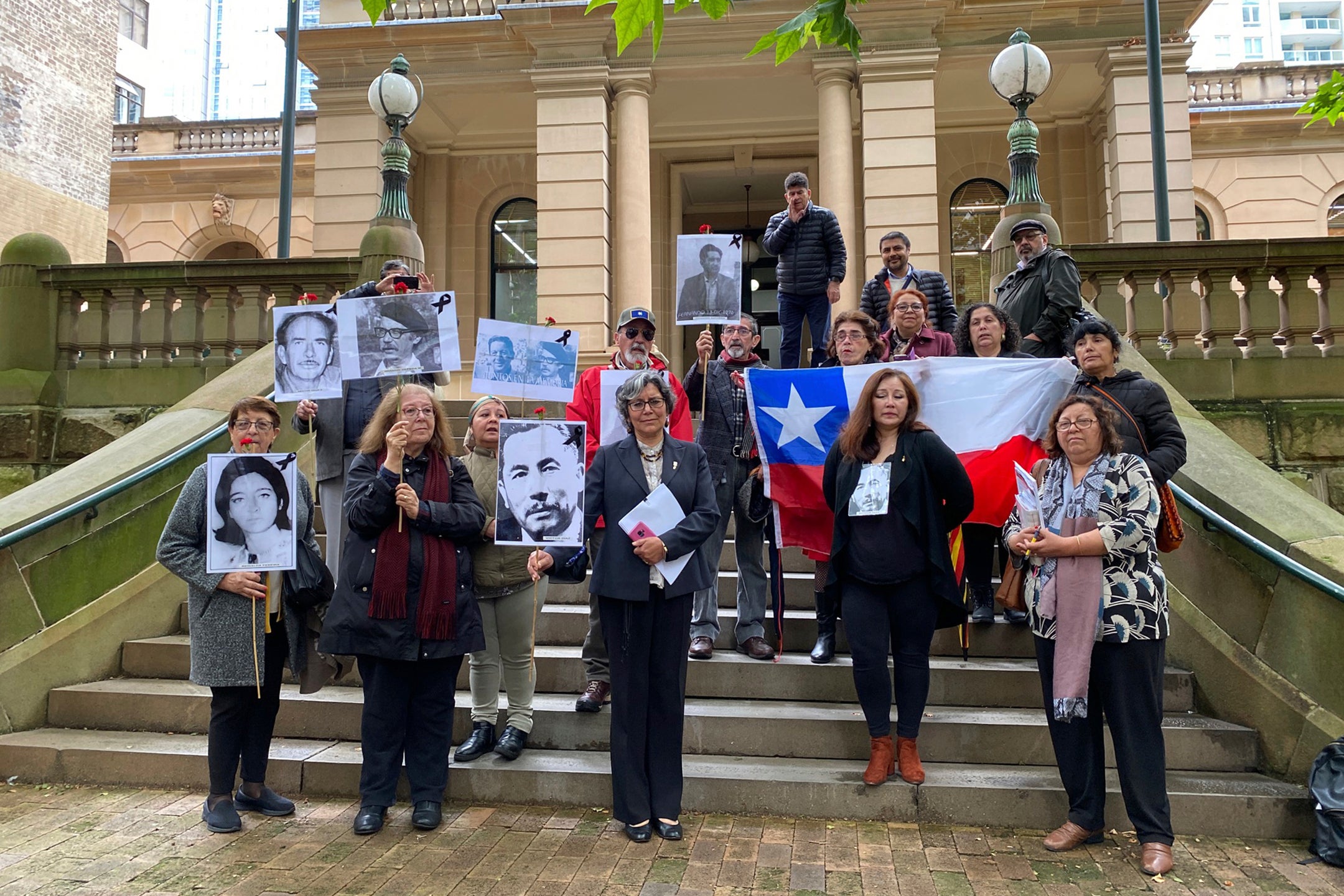Pinochet ‘kidnapper' found working as cleaner in Sydney ‘is eligible for extradition’, Australia says
Adriana Rivas is accused of having participated in the disappearance of the secretary-general of the Communist Party, Víctor Díaz, and six of his supporters, in Chile

Your support helps us to tell the story
From reproductive rights to climate change to Big Tech, The Independent is on the ground when the story is developing. Whether it's investigating the financials of Elon Musk's pro-Trump PAC or producing our latest documentary, 'The A Word', which shines a light on the American women fighting for reproductive rights, we know how important it is to parse out the facts from the messaging.
At such a critical moment in US history, we need reporters on the ground. Your donation allows us to keep sending journalists to speak to both sides of the story.
The Independent is trusted by Americans across the entire political spectrum. And unlike many other quality news outlets, we choose not to lock Americans out of our reporting and analysis with paywalls. We believe quality journalism should be available to everyone, paid for by those who can afford it.
Your support makes all the difference.An Australian judge ruled on Thursday that a woman wanted in Chile on kidnapping charges dating back to Augusto Pinochet’s military dictatorship in the 1970s can be extradited.
Adriana Rivas, 67, has been in custody since her arrest by New South Wales police in February 2019 following a request from Chile for her extradition.
The magistrate at the local court dismissed the objections by her legal team to her extradition on allegations that she kidnapped seven people in 1976 and 1977, including Communist Party leader Victor Diaz. The alleged victims have never been found.
Ms Rivas has 15 days to seek a review of the court’s decision.
Some 3,000 political opponents of General Augusto Pinochet were killed in the 1970s and 1980s during his military rule.
Chilean authorities have accused Ms Rivas of having participated in the disappearance of the secretary-general of the Communist Party, Víctor Díaz, and six of his supporters.
Ms Rivas worked as an assistant to Manuel Contreras, the head of Chile’s secret police, the National Intelligence Directorate (Dina), under the dictatorship of General Pinochet.
The secret police force was founded by the dictator himself to hunt down his political opponents and was at the centre of General Pinochet's campaign to silence opposition to his rule after he seized power in a military coup in September 1973.
Its agents abducted, tortured, killed and "disappeared" thousands of people before it was replaced by the equally brutal National Information Center, an army intelligence battalion.
Her lawyers denied the allegations, arguing that Ms Rivas was not a Dina agent and her work was mundane. Her tasks included collecting laundry, making coffee and translating, they told the court.
In 2013, Ms Rivas told Australia’s Special Broadcasting Service (SBS) that she was innocent of the charges, but defended the use of torture in Chile at the time as necessary.
Chilean-born lawyer and advocate for Pinochet’s victims Adriana Navarro said Ms Rivas’ case was the first of its kind and “extremely important.”
“We are happy that Australia is on the side of human rights and it respects human rights,” Navarro told reporters outside the Sydney court following the ruling.
Ms Rivas denied meeting the alleged victims.
A fugitive, Ms Rivas moved to Australia in 1978 and was detained in Chile during a visit to see family in 2006. She was released after some months on probation and fled to Australia in 2009.
She lived quietly in Sydney’s wealthy eastern suburbs, working as a part-time nanny and cleaner until her arrest.
Australia and Chile have had an extradition treaty since 1993.
Additional reporting from the agencies
Join our commenting forum
Join thought-provoking conversations, follow other Independent readers and see their replies
Comments